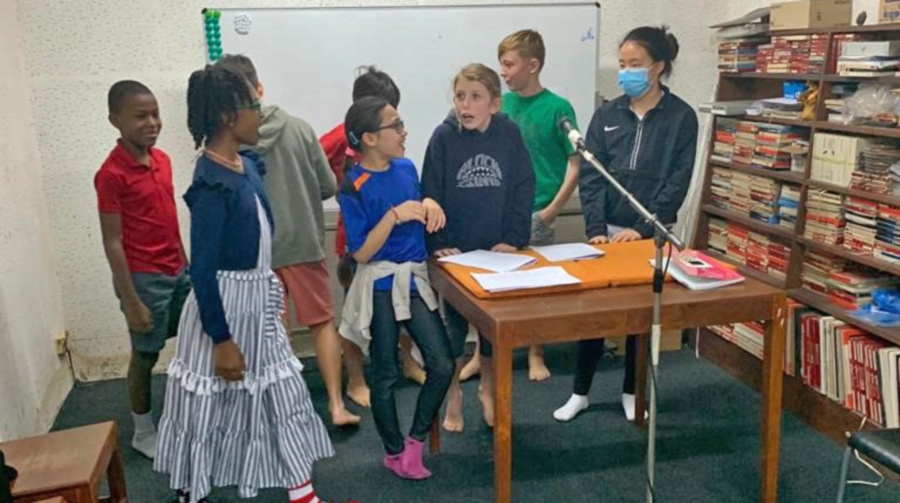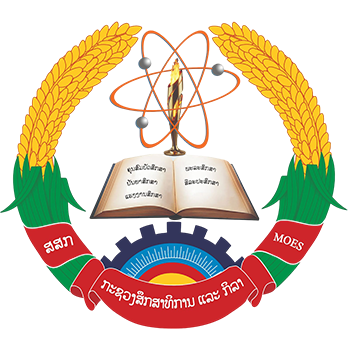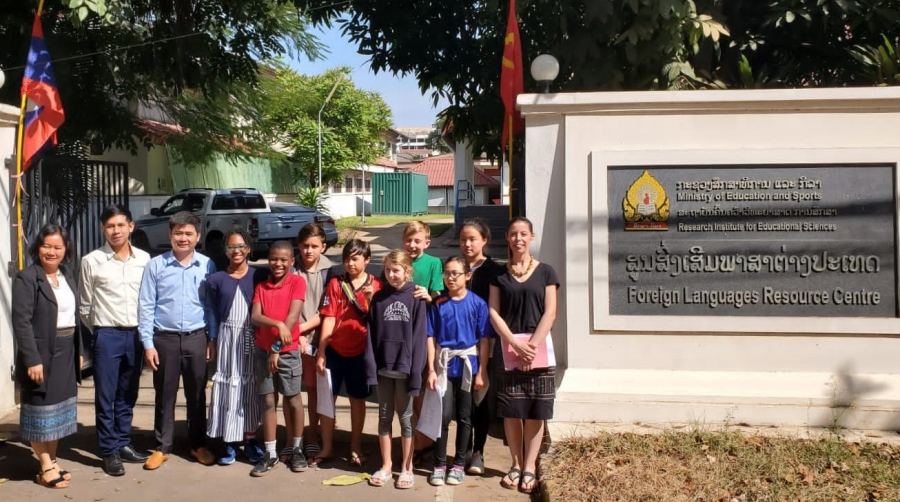The audio material will enable Lao students to learn English in an entertaining way and expose them to the diversity of native accents in English spoken language
The Ministry of Education and Sports, with support from Australia is preparing new Grade 3 English teaching and learning materials for the beginning of next school year.
The new English curriculum has been designed using a communicative approach which focuses on using language for communication and interaction. There is a strong focus on developing listening and speaking skills to enable students to communicate and to develop their speaking skills required to support reading and writing. Another new addition is the use of phonics to develop reading and writing skills through teaching students sound letter relationships and how to apply this knowledge to read and write simple words.

Lao students start English instruction in Grade 3. When students learn a new language, they need a lot of linguistic input. This means exposure to the language with multiple opportunities to listen to it. It can be challenging for teachers in Laos to provide the level of input students need, especially if they do not feel confident about their own English.
Australia, via the Basic Education Quality and Access in Lao PDR program, contacted the Vientiane International School to propose a collaboration to support the production of audio materials that will come with the new English Grade 3 textbooks. Eight students, aged 10 to 12 years old, immediately volunteered to assist in the recording over two days during the international school holidays.
The students played a range of roles, including the four main characters who feature in the new Grade 3 textbooks. They recorded simple monologues and dialogues as well as some songs and chants. On the first day, the students met with the curriculum writers and experts from RIES and BEQUAL; roles were allocated, and students practiced the audio scripts. On the second day, they went to the studio in the Research Institute of Educational Sciences to record.
The students were very enthusiastic to contribute to the education of the country they are living in; and they also had a lot of fun recording. They did an excellent job reading their parts – focusing on slowing down their speech and pronouncing each word very clearly so that the Lao Grade 3 students are able to understand and follow the material. They also did a great job with ‘voice acting’ to make the materials realistic and engaging. They persevered and stayed motivated even when they had to record the same track several times.
The English curriculum writers from RIES are very pleased with the final result and the addition of audio materials, which is a new resource for the Primary English curriculum. This audio material will be a great resource for teachers and students and provide plenty of opportunity for linguistic input which is essential when learning a new language.



 ພາສາລາວ
ພາສາລາວ
